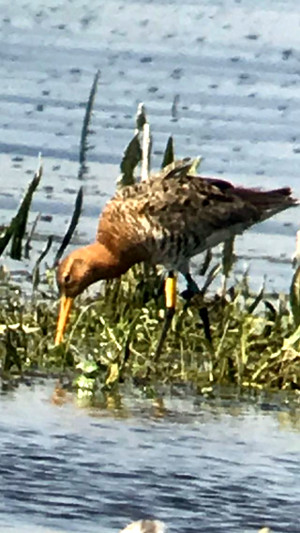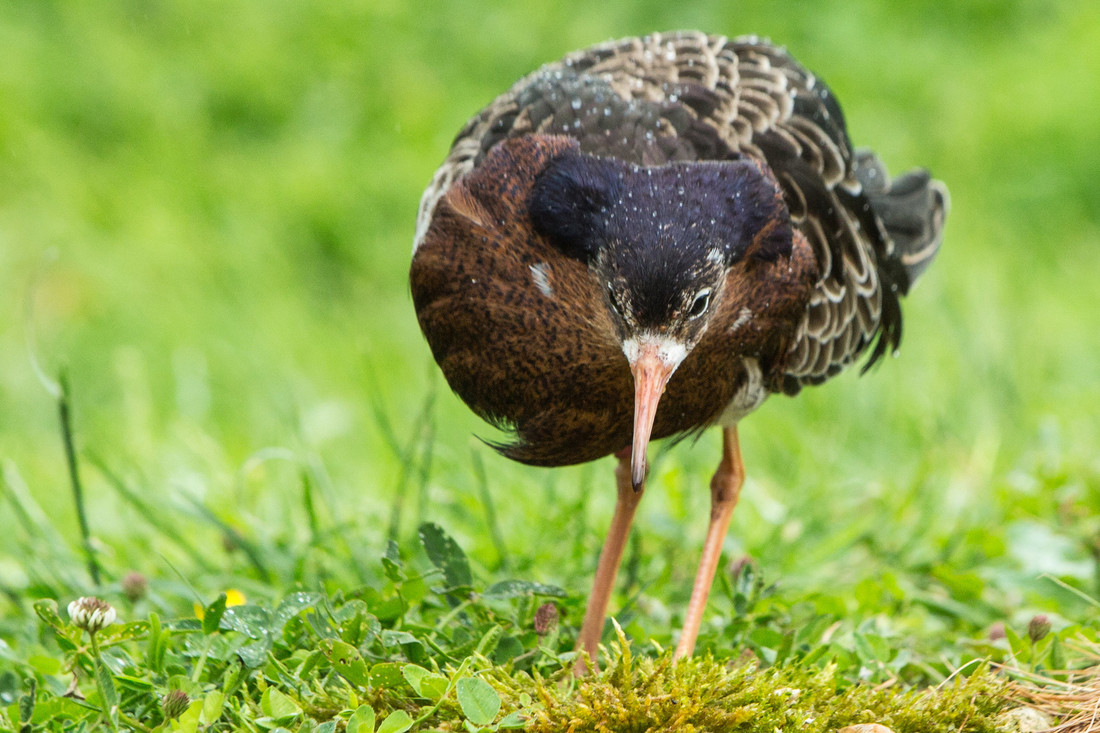A black-tailed godwit has returned to The Fens in East Anglia where it was hand-reared after migrating as far as Portugal for the winter.
The bird is one of 26 black-tailed godwits raised at WWT Welney and released into the wild last summer. The wader, a male, has been named Delph after the river bank where he was sighted.

Delph returns
It is welcome news for conservationists at RSPB and WWT who have formed an innovative partnership called Project Godwit which aims to help black-tailed godwits, a species in decline in the UK.
Project Godwit Aviculturist at WWT Louise Clewley made the discovery. She said:
“It was right in front of WWT Welney’s main observatory for everyone to see! Migration is fraught with danger and the successful return of the first of our UK hand-reared batch gives us hope for the future of these birds.”
Although some black-tailed godwits return to their breeding site in the first year, it’s not unusual for others to stay in their wintering grounds for the summer too.
Hannah Ward, RSPB Project Godwit Manager, said:
“We weren’t necessarily expecting any of the hand-reared birds to return this summer so this is a wonderful and welcome surprise. We may have to wait until next summer before this young bird breeds but this is a fantastic moment for the Project Godwit team and great news for this magnificent but threatened species.”
The eggs of the endangered birds were collected from the wild last spring by RSPB and WWT staff and hatched and raised in captivity to boost their chances of reaching maturity.
Raising young birds from eggs collected in the wild is known as head-starting. The technique is proving a powerful tool for bird conservation, having been used in Russia to help stabilise numbers of the critically endangered spoon-billed sandpiper.
By head-starting black-tailed godwits, experts at WWT and RSPB are aiming to increase the small breeding population at the Ouse and Nene Washes, the two main breeding sites in the UK.
Head-starting is just one aspect of Project Godwit which also focuses on monitoring, habitat management and trialling conservation techniques.
Project Godwit is a partnership between RSPB and WWT with major funding from the EU LIFE Nature Programme, HSBC’s 150th Anniversary Fund, Natural England and the Heritage Lottery Fund, through the Back from the Brink programme. The project aims to secure the future of breeding black-tailed godwits in the UK.
Conservationists are encouraging birders to look out for these special birds. Sightings can be registered at projectgodwit.org.uk



